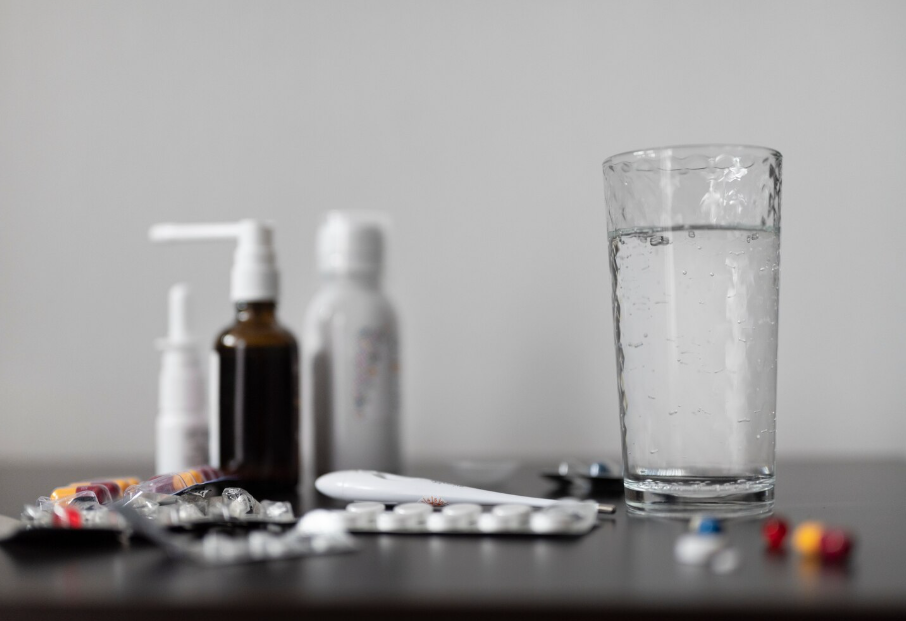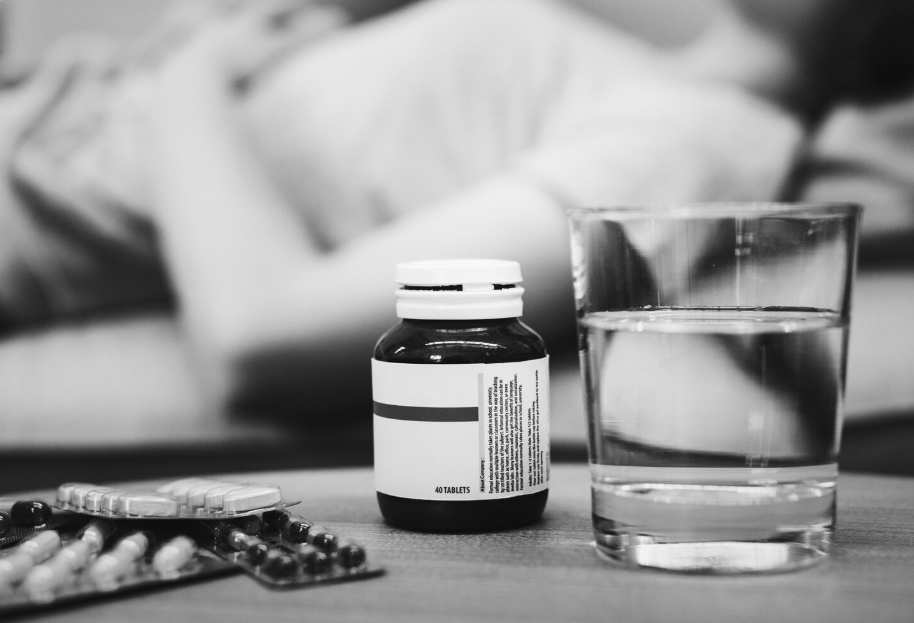Understanding Detoxing
Detoxing has gained popularity as a way to cleanse the body and improve overall well-being. To fully comprehend the impact of detoxing and its potential effects, it is essential to understand what detoxing entails and the common methods employed.
What is Detoxing?
Detoxing, short for detoxification, is the process of eliminating toxins and impurities from the body. The aim is to support the body's natural detoxification processes and enhance its ability to rid itself of harmful substances. Proponents of detoxing believe that it can improve various aspects of health, including digestion, energy levels, and skin condition.
Detoxing may involve dietary changes, fasting, or the use of specific products or programs. The duration of a detox can vary, ranging from a few days to several weeks, depending on the chosen method and individual preferences.
Common Methods of Detoxing
There are numerous methods individuals employ when engaging in detoxing. Here are some of the most common ones:
It's important to note that the effectiveness and safety of these methods may vary, and individual experiences can differ. It's advisable to consult with a healthcare professional before embarking on any detox program, particularly if you have pre-existing health conditions or concerns.
Understanding what detoxing entails and the various methods available can help individuals make informed decisions about their health. While detoxing can be a personal choice, it's crucial to approach it with caution and consider the potential impact on one's overall well-being.
The Bleeding Question
Detoxing has gained popularity as a way to cleanse the body and promote overall health. However, there are concerns about whether detoxing can cause bleeding. In this section, we will examine the potential link between detoxing and bleeding, as well as the factors that can influence detox-related bleeding.
Can Detoxing Cause Bleeding?
Detoxing itself is not directly known to cause bleeding. However, certain detox methods and practices can potentially lead to bleeding in some individuals. It's important to note that any unexplained or abnormal bleeding should always be evaluated by a healthcare professional to determine the underlying cause.
Factors Influencing Detox-Related Bleeding
Several factors can influence the potential for detox-related bleeding. These factors may vary depending on the detox method and the individual's overall health. Here are some key factors to consider:
- Intense Cleansing Programs: Some detox programs may involve intense cleansing routines, such as extensive fasting or the use of herbal supplements. These practices can potentially put stress on the body, including the digestive system, which may lead to gastrointestinal issues, including bleeding.
- Pre-existing Medical Conditions: Individuals with pre-existing medical conditions, such as gastrointestinal disorders or blood clotting disorders, may be more susceptible to bleeding during detoxing. These conditions can be aggravated by certain detox practices, so it is important to consult with a healthcare professional before embarking on any detox program.
- Improper Use of Detox Methods: Improper use of detox methods, such as excessive use of enemas or colon cleanses, can irritate the delicate lining of the digestive tract, potentially leading to bleeding. It is crucial to follow the recommended guidelines and consult with a healthcare professional or nutritionist to ensure the safe and appropriate use of detox methods.
- Individual Variations: Every individual is unique, and their response to detoxing can vary. While some individuals may experience no adverse effects, others may be more prone to bleeding. Factors such as overall health, genetics, and individual sensitivities can influence how the body responds to detox methods.
It is important to approach detoxing with caution and prioritize your health and safety. If you experience any unexplained or excessive bleeding during or after detoxing, it is advisable to seek medical attention promptly to determine the cause and receive appropriate care.
By understanding the potential link between detoxing and bleeding, as well as the factors that can influence detox-related bleeding, individuals can make informed decisions about their detox practices and seek professional guidance when necessary.
Types of Detoxing
Detoxing is a popular practice that involves different methods and approaches. Let's explore three common types of detoxing: juice cleanses, water fasting, and herbal detox programs.
Juice Cleanses
Juice cleanses involve consuming only fruit and vegetable juices for a specific period, typically ranging from a few days to a week. These juices are often made from fresh produce and may contain a combination of fruits, vegetables, and herbs. Juice cleanses are believed to help flush out toxins from the body and provide a concentrated source of essential vitamins and minerals.
Here is an example of a juice cleanse schedule:
It's important to note that juice cleanses may not be suitable for everyone, especially those with certain medical conditions or nutrient deficiencies. It's recommended to consult with a healthcare professional before embarking on a juice cleanse.
Water Fasting
Water fasting involves abstaining from all food and consuming only water for a specific period. This method aims to give the digestive system a break and promote detoxification. Water fasting can range from 24 hours to several days or even longer, depending on individual goals and health considerations.
During a water fast, it is crucial to stay well-hydrated and monitor your body's response. It's important to note that water fasting should only be done under medical supervision, as it can have potential risks and complications. It is not recommended for individuals with certain medical conditions or those who are pregnant or breastfeeding.
Herbal Detox Programs
Herbal detox programs involve the use of specific herbs and supplements to support the body's natural detoxification processes. These programs often include a combination of herbs with purported detoxifying properties, such as milk thistle, dandelion root, and burdock root. Herbal detox programs may come in the form of teas, capsules, or powders.
Here are some commonly used herbs in detox programs:
It's important to note that while herbal detox programs are widely available, their effectiveness and safety can vary. It's recommended to consult with a healthcare professional before starting any herbal detox program, especially if you have any underlying health conditions or are taking medications.
By understanding the different types of detoxing methods, individuals can make informed decisions about which approach aligns with their goals and health considerations. It's always advisable to consult with a healthcare professional before starting any detoxing program to ensure safety and suitability for your individual needs.
Potential Side Effects
Detoxing is a process that aims to rid the body of toxins and promote overall health and well-being. While it can have potential benefits, it's important to be aware of the possible side effects that may occur during detoxing. Understanding these side effects can help individuals make informed decisions about their detox journey. Here are some common detox side effects and when to seek medical attention.
Common Detox Side Effects
Detoxing can lead to various side effects as the body adjusts to the changes. These side effects are often temporary and may vary depending on the individual and the type of detox being followed. It's important to note that not everyone will experience these side effects, and the severity can also differ. Some common detox side effects include:
When to Seek Medical Attention
While most detox side effects are temporary and resolve on their own, there are situations when it's important to seek medical attention. If you experience any of the following symptoms or if the side effects become severe or persistent, it is recommended to consult with a healthcare professional:
- Severe or prolonged headache that is not relieved by over-the-counter pain relievers.
- Extreme fatigue or weakness that interferes with daily activities.
- Persistent and severe nausea or vomiting that leads to dehydration.
- Intense abdominal pain or cramping that is not relieved by rest or changes in diet.
- Blood in the stool or rectal bleeding.
- Signs of severe dehydration, such as rapid heartbeat, dizziness, or reduced urine output.
It's crucial to listen to your body and prioritize your well-being during the detoxing process. If you have any concerns or experience any unusual symptoms, seeking medical advice can provide guidance and ensure your safety.
Understanding the potential side effects and when to seek medical attention can help individuals make informed decisions about their detoxing journey. It's important to approach detoxing with caution and to consider consulting with healthcare professionals before making any significant changes to your diet or lifestyle.
Ensuring Safety During Detoxing
When engaging in any detoxing practices, it's important to prioritize your safety and well-being. Here are two key steps you can take to ensure a safe detoxing experience: consulting with healthcare professionals and monitoring your body's response.
Consulting with Healthcare Professionals
Before embarking on any detoxing program or making significant changes to your diet, it's advisable to consult with healthcare professionals. They can provide personalized advice based on your individual health status and help determine if detoxing is appropriate for you.
Healthcare professionals, such as doctors, nutritionists, or registered dietitians, can evaluate your medical history, current health conditions, and any medications you may be taking. They can assess whether detoxing is suitable for your specific circumstances or if there are any potential risks or contraindications.
During the consultation, be sure to discuss your goals, concerns, and any symptoms you may be experiencing. This open communication will help healthcare professionals provide tailored recommendations and guidance to ensure a safe and effective detoxing experience.
Monitoring Your Body's Response
During detoxing, it's essential to closely monitor your body's response and be aware of any changes or symptoms that may arise. While mild side effects are common during detoxing, it's important to differentiate between normal detox symptoms and more serious issues.
Keep a journal to track your symptoms, energy levels, mood, and overall well-being throughout the detoxing process. This will allow you to identify any patterns or changes and provide valuable information to healthcare professionals if needed.
If you experience any concerning or severe symptoms during detoxing, it's crucial to seek medical attention promptly. While detoxing can cause mild side effects like headaches, fatigue, or gastrointestinal disturbances, persistent or severe symptoms such as excessive bleeding should not be taken lightly.
By consulting with healthcare professionals and closely monitoring your body's response, you can ensure that your detoxing journey is conducted in a safe and responsible manner. Prioritizing your health and seeking professional guidance will help you navigate the detoxing process with confidence and minimize any potential risks.
Sources
https://www.newhorizonscentersoh.org/can-detoxing-cause-bleeding
https://www.stepstorecovery.com/can-detoxing-cause-bleeding
https://www.doverecovery.com/detoxing-cause-bleeding
https://www.townsendla.com/can-detoxing-cause-bleeding
https://www.leorabh.com/can-detoxing-cause-bleeding
https://www.coachellavalleyrecoverycenter.com/can-detoxing-cause-bleeding
https://www.brighterdaymh.com/detoxing-and-bleeding


.jpg)





.png)
.png)
.png)
.png)